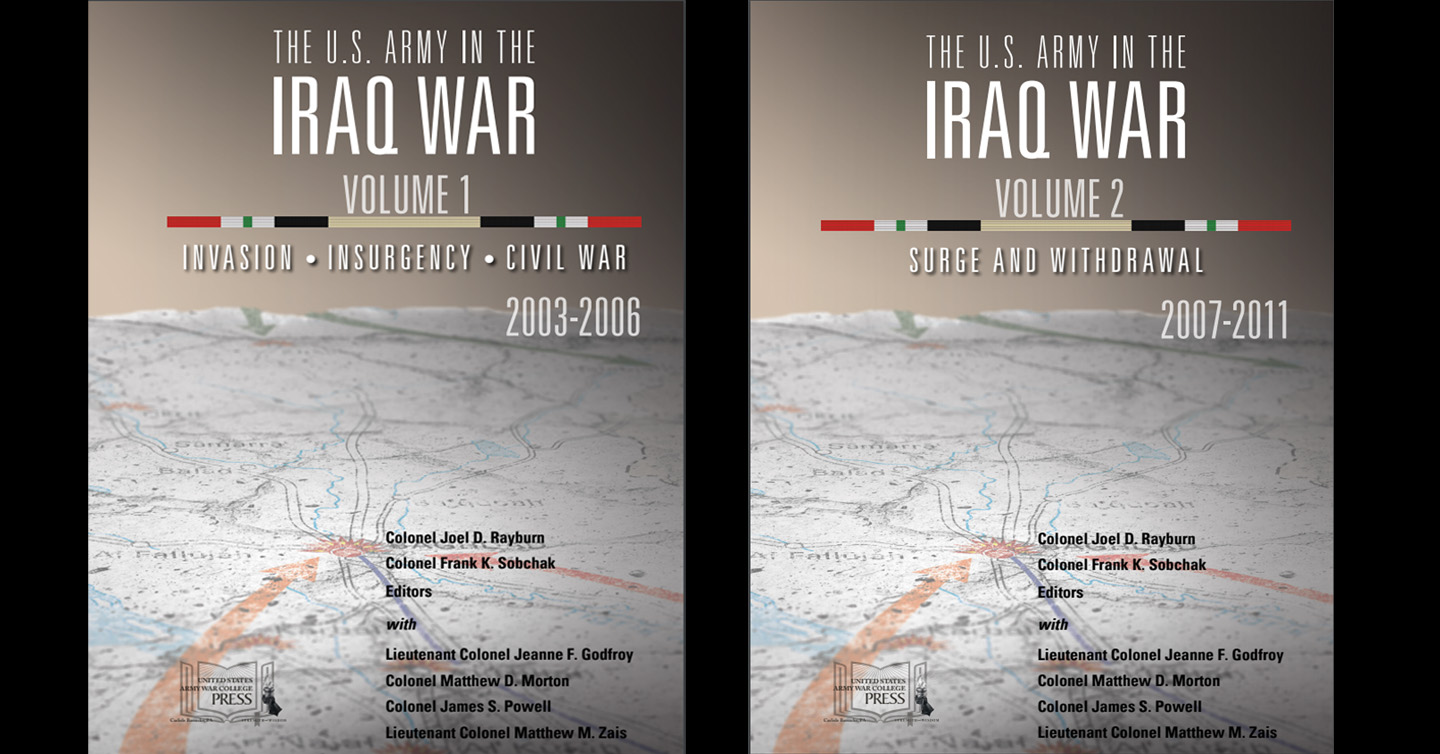
In 2013, a team of authors was commissioned by then Chief of Staff of the Army General Odierno to write a study of Operation Iraqi Freedom to glean insights for immediate practical application. The resulting two-volume report (Volume I | Volume II) was completed in 2016 but not authorized for release until early in 2019. In this presentation, A BETTER PEACE welcomes co-editor U.S. Army Colonel (Retired) Frank Sobchak and author U.S. Army Colonel Jim Powell to discuss their experiences of assembling the team, researching the report, and ultimately writing what came to a 1300-page product with tremendous implications for the current and future Army. What were more important insights? What were the toughest challenges, beyond the sheer size of the project? A BETTER PEACE Editor Jacqueline E. Whitt moderates.
[General Odierno] felt that we’d spent the first several years of the Iraq War re-learning many of the lessons of the Vietnam War
Podcast: Download
Frank Sobchak is a retired colonel in the U.S. Army and co-editor of the Iraqi Freedom Study (with U.S. Army Colonel Joel Rayburn. Jim Powell is a colonel in the U.S. Army and one of the Study’s authors. Jacqueline E. Whitt is Professor of Strategy at the U.S. Army War College and the Editor of A BETTER PEACE. The views expressed in this presentation are those of the speakers and do not necessarily reflect those of the U.S. Army War College, U.S. Army, or Department of Defense.
The OIF Study is available at the U.S. Army War College Publications website. Click the following links to access them: Volume I | Volume II
Image: Covers of the two volumes of the report. Prepared by Jennifer Nevil. Composite assembled by Tom Galvin.





So very glad that,“[General Odierno] felt that we’d spent the first several years of the Iraq War re-learning many of the lessons of the Vietnam War.” These last two words seem to have been mysteriously erased from the Army’s collective memory, but for a few who weren’t afraid to see through the “historians haze.”
“The Army had never really done an in-depth study of the Vietnam War. The histories that were being done were not concluded by 2013 and are still being written.” I get the distinct impression that the bulk of historians think differently as they reinforce orthodox beliefs with each lecture, book, and article they utter or write.
Okay, So why was funding for the oral history project at Combat Studies Institute cut in 2015??
I discussed that move here:
https://networks.h-net.org/node/12840/blog/80698/hand-grenade-week-28
John T. Kuehn, Ph.D.
Professor of Military History
US Army Command and GEneral STaff College
Interviewing only officers misses a lot. 79% of the Vietnam veterans had at least a high school diploma and I’m sure in today’s Army it must be more. It seems the old adage, “Officers know, enlisted only follow” continues.
Even S.L.A. Marshall interviewed enlisted soldiers.